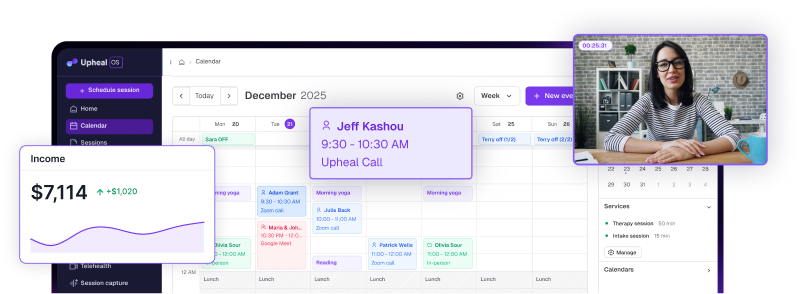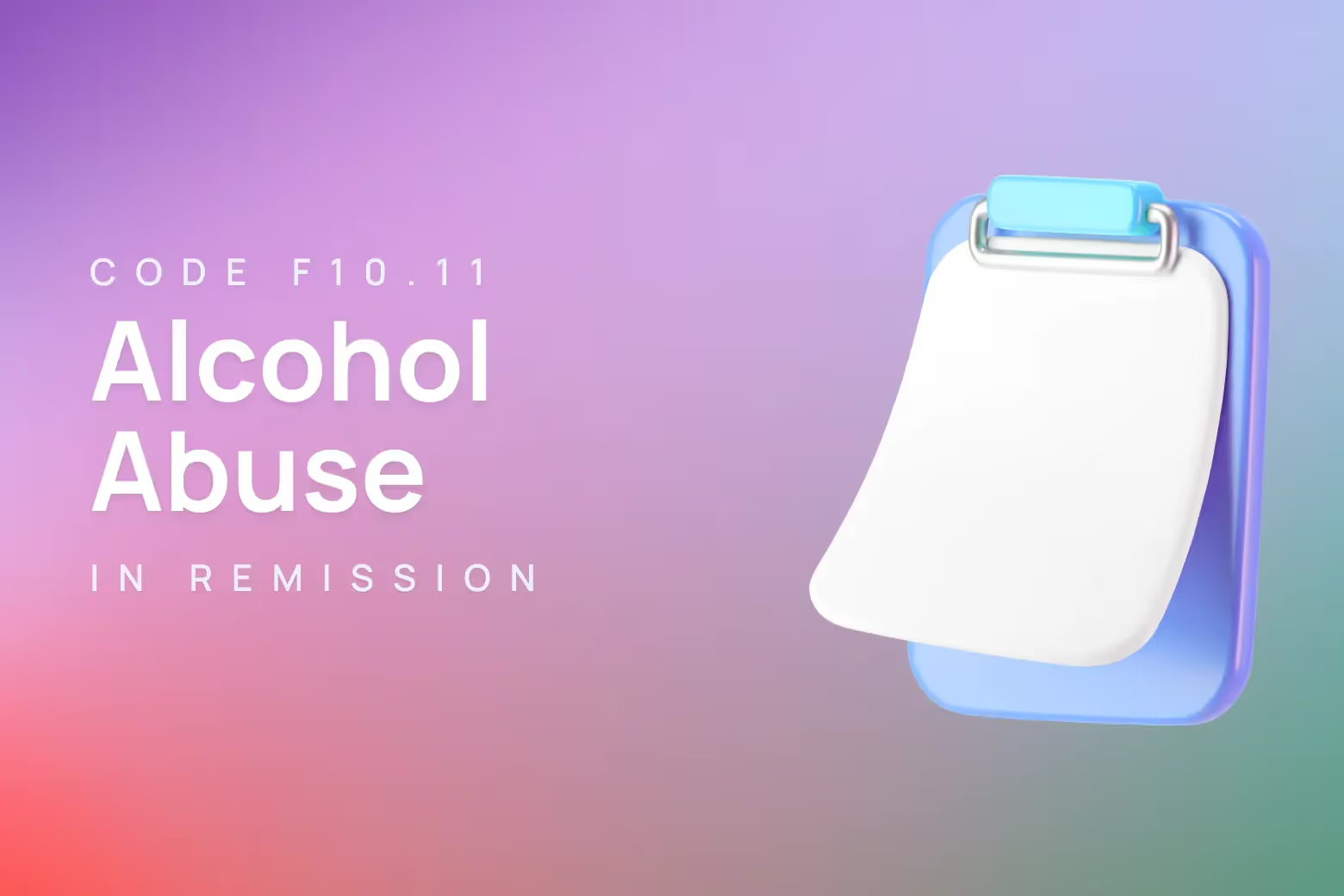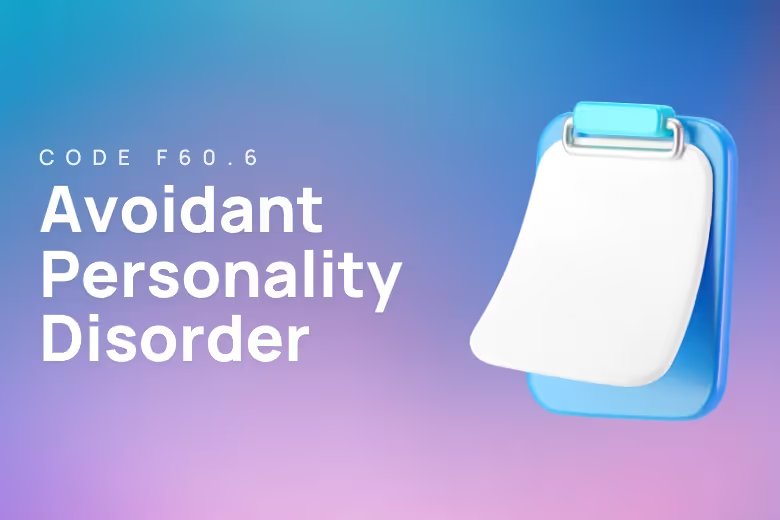ICD-10 code for bipolar disorder, current episode depressed, mild or moderate severity, unspecified

F31.30 is the ICD-10 code for bipolar disorder, current episode depressed, mild or moderate severity, unspecified. This code applies when someone with established bipolar disorder is currently experiencing a major depressive episode of mild to moderate intensity, without specification of psychotic features.
Proper diagnostic coding ensures clients receive appropriate treatment authorization while meeting insurance requirements. Accurate documentation supports continued care and helps providers focus on delivering evidence-based interventions that can restore stability and hope.
Key takeaways
- F31.30 requires an established bipolar disorder diagnosis with a current major depressive episode
- The severity specifier indicates mild to moderate symptom intensity and functional impairment
- Evidence-based treatments include mood stabilizers, antidepressants, and psychotherapy

Diagnostic criteria for mild-moderate depressed episodes (F31.30)
To assign F31.30, clinicians must first establish a bipolar disorder diagnosis, which requires at least on lifetime manic or hypomanic episode. The current major depressive episode must meet criteria for five or more symptoms present nearly daily for at least two weeks.
The essential symptoms include depressed mood or loss of interest or pleasure in activities. Additional symptoms encompass significant weight changes, sleep disturbances, psychomotor agitation or retardation, fatigue, feelings of worthlessness or guilt, concentration difficulties, and recurrent thoughts of death.
The mild to moderate severity specifier distinguishes F31.30 from more severe presentations. Mild episodes involve few symptoms beyond diagnostic criteria, with distressing but manageable intensity and minor functional impairment. Moderate episodes fall between mild and severe in symptom count, intensity, and functional impact.
When to use F31.30 diagnosis code
F31.30 should be used when the current episode meets criteria for major depression in someone with established bipolar disorder, with mild to moderate severity. Clinicians must distinguish this from related diagnoses to ensure proper coding accuracy.
F31.30 vs F31.31 (Mild depressed episodes)
F31.31 specifies mild severity with additional detail about the specific intensity level. While F31.30 encompasses both mild and moderate presentations without psychotic feature specification, F31.31 specifically indicates mild severity only. The choice between these codes depends on the clinician's assessment of symptom severity and the need for diagnostic precision.
F31.30 vs F31.32 (Moderate depressed episodes)
F31.32 specifically indicates moderate severity, providing more diagnostic precision than F31.30. When the depressive episode clearly meets moderate criteria — with symptom count, intensity, and functional impairment between mild and severe levels — F31.32 offers more specific coding. F31.30 serves as a broader category when the exact severity level within the mild-to-moderate range remains unclear.
Related ICD-10 codes
- F31.31 Bipolar disorder, current episode depressed, mild
- F31.32 Bipolar disorder, current episode depressed, moderate
- F31.4 Bipolar disorder, current episode depressed, severe, without psychotic features
- F31.5 Bipolar disorder, current episode depressed, severe, with psychotic features
Interventions and CPT codes for bipolar disorder, current episode depressed
Evidence-based treatments for depressive episodes in bipolar disorder require careful consideration of both mood stabilization and depression management. Treatment approaches should address the depressive symptoms while preventing mood episode recurrence.
Medication management typically involves mood stabilizers such as lithium, anticonvulsants like lamotrigine, and atypical antipsychotics. Antidepressants may be used cautiously in combination with mood stabilizers to prevent manic switching.
Psychotherapy interventions include cognitive behavioral therapy, interpersonal therapy, and psychoeducation about bipolar disorder. Family therapy can provide crucial support and education for loved ones.
For psychotherapy services, providers use standard CPT codes:
- 90834 45-minute individual psychotherapy session
- 90837 60-minute individual psychotherapy session
- 90847 Family therapy with patient present
- 90853 Group psychotherapy
Medication management is billed using:
- 90834 or 90837 when combined with psychotherapy
- 99213-99215 for medication management visits
How Upheal simplifies F31.30 ICD-10 documentation
Suggesting appropriate ICD-10 codes based on session content
Upheal's clinical documentation platform recognizes key clinical indicators such as depressed mood, anhedonia, and functional impairment patterns that align with bipolar depression presentations.
The platform considers both historical manic or hypomanic episodes and current depressive symptoms to suggest appropriate bipolar disorder codes.
Maintaining HIPAA-compliant records with proper diagnostic coding
Upheal maintains detailed records of symptom presentations, severity assessments, and functional impairment levels that support F31.30 coding decisions.
The platform automatically incorporates severity specifiers and episode characteristics into clinical notes. This creates comprehensive documentation that supports insurance authorization and clinical decision-making.
Reducing administrative burden so you can focus on client care
By automating diagnostic code suggestions and documentation processes, Upheal frees clinicians to concentrate on therapeutic interventions. Providers spend less time on paperwork and more time delivering evidence-based treatments for bipolar depression.
Supporting clients with bipolar disorder, current episode depressed
Bipolar depression requires specialized treatment approaches that address both current symptoms and long-term mood stability. Clients benefit from comprehensive care that combines medication management, psychotherapy, and psychosocial support.
The therapeutic relationship becomes especially important during depressive episodes when clients may feel hopeless about recovery prospects. Accurate documentation using F31.30 ensures insurance coverage for necessary treatments while providers focus on delivering interventions that can restore functioning and prevent future episodes.
Upheal helps behavioral health providers maintain thorough documentation while dedicating more time to direct client care. The platform supports clinical excellence by simplifying administrative tasks and ensuring accurate diagnostic coding throughout treatment.












